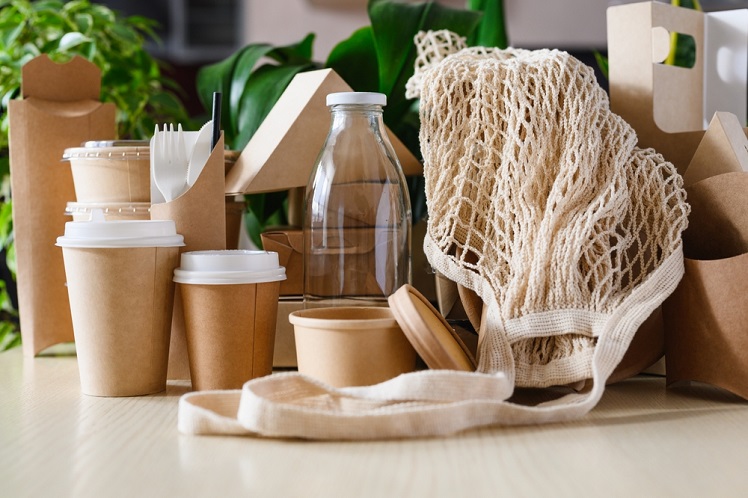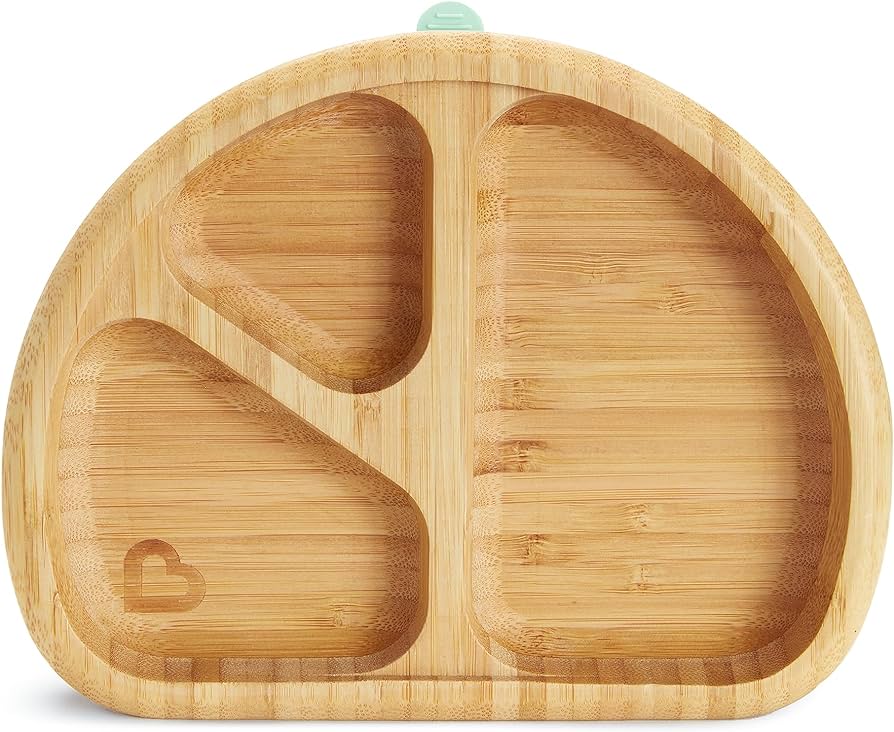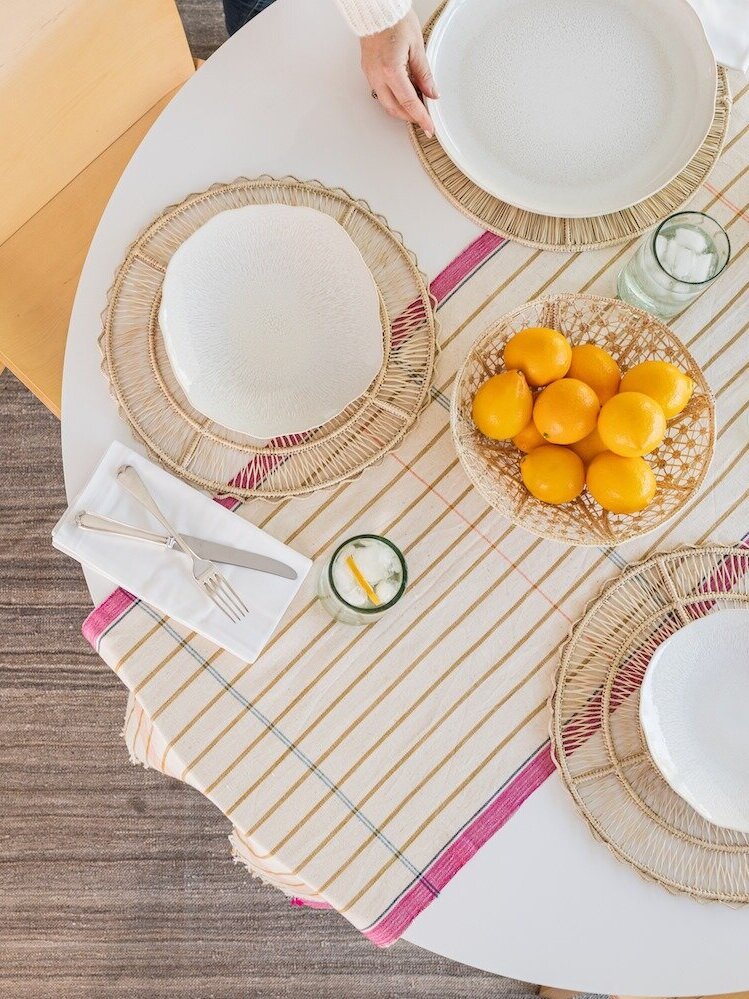
Welcome to 'Your Path to Zero Waste Living: 9 Effective Strategies to Say Goodbye to Waste'.
In this article, we will explore practical and solution-oriented approaches to help you reduce waste and live a more sustainable lifestyle.
From utilizing reusable products to implementing waste auditing techniques, we will provide you with actionable steps to minimize your impact on the environment.
Whether you are a beginner or seasoned in the zero waste journey, this guide is designed to empower you on your path towards freedom from waste.
Reusable Products
One effective strategy for reducing waste is to incorporate reusable products into your daily life. By embracing sustainable fashion, you can reduce the environmental impact of your clothing choices. Instead of buying fast fashion items that contribute to landfill waste and pollution, opt for high-quality, timeless pieces made from sustainable materials. These garments are designed to last longer, reduce the need for constant replacement, and minimize waste.
Additionally, adopting a zero waste kitchen can greatly reduce the amount of single-use items that end up in landfills. Replace disposable items like plastic wrap, paper towels, and plastic bags with reusable alternatives such as beeswax wraps, cloth napkins, and silicone food storage bags. These small changes can have a significant positive impact on the environment and contribute to a more sustainable lifestyle.
Composting
To effectively reduce waste and contribute to a more sustainable lifestyle, incorporating composting into your daily routine is essential. Composting is the process of decomposing organic materials, such as food scraps and yard waste, into nutrient-rich soil. By composting, you can significantly reduce the amount of waste that goes into landfills while also creating a valuable resource for your garden or plants.

Composting offers numerous benefits. Firstly, it helps divert organic waste from landfills, reducing greenhouse gas emissions and preventing soil pollution. Additionally, composting enriches the soil with essential nutrients, improves soil structure, and enhances water retention. It also promotes biodiversity by supporting beneficial microorganisms and earthworms.
There are different composting methods to choose from, depending on your space and needs. Traditional composting involves layering green and brown materials in a compost bin or pile and turning it regularly. Vermicomposting, on the other hand, utilizes worms to break down organic matter into nutrient-rich castings. Bokashi composting is an anaerobic process that uses a fermentation system to decompose food waste.
Recycling
Continuing the discussion on waste reduction and sustainable living, the next effective strategy to embrace on your path to zero waste is recycling.
Recycling plays a crucial role in waste management, as it helps to divert materials from the landfill and conserve valuable resources. By recycling items such as paper, plastic, glass, and metal, we can reduce the need for extracting and producing new materials, thus reducing energy consumption and greenhouse gas emissions.
Many communities have established recycling programs that make it convenient for residents to recycle their waste. It is essential to familiarize yourself with the recycling guidelines in your area to ensure that you are recycling correctly.
Reducing Consumption
Reducing consumption is a key strategy in achieving a zero waste lifestyle. By adopting mindful buying habits, we can prioritize purchasing only what we truly need and avoid unnecessary waste.
Embracing a minimalist lifestyle also helps in reducing consumption, encouraging us to live with less and focus on experiences rather than material possessions.

Additionally, using reusable alternatives for products such as cloth bags, stainless steel water bottles, and cloth napkins can significantly reduce our consumption of single-use items.
Mindful Buying Habits
Adopting conscious purchasing habits allows individuals to minimize their consumption and contribute to a zero waste lifestyle. To achieve this, it is essential to prioritize eco-friendly brands and practice ethical consumerism. By supporting companies that prioritize sustainability and social responsibility, consumers can make a positive impact on the environment and society.
When it comes to eco-friendly brands, look for certifications such as Fair Trade, Organic, or B Corp, which indicate a commitment to ethical practices. These brands often use sustainable materials, reduce waste in their production processes, and support workers' rights.
Practicing ethical consumerism involves considering the entire lifecycle of a product. Before making a purchase, ask yourself if you really need it and if it aligns with your values. Opt for durable, long-lasting items that are repairable or recyclable.
Minimalist Lifestyle Choices
To further cultivate a zero waste lifestyle, individuals can embrace a minimalist approach by consciously curating their possessions. By adopting a minimalist lifestyle, you can reduce your consumption and make more sustainable choices. Here are three practical tips to help you get started:
- Embrace sustainable fashion: Instead of constantly buying new clothes, consider investing in high-quality, timeless pieces that will last longer. You can also explore second-hand or thrift stores for unique and affordable finds.
- Declutter regularly: Regularly decluttering your living space not only helps you get rid of unnecessary items but also allows you to assess what you truly need. Donate or sell items that are in good condition to give them a new life.
- Prioritize experiences over material possessions: Instead of accumulating more stuff, focus on creating memorable experiences. Spend time with loved ones, explore nature, or engage in hobbies that bring you joy.
Reusable Alternatives for Products
To continue our exploration of zero waste living, let's now delve into reusable alternatives for products, a key aspect in reducing consumption.
One of the most effective ways to reduce waste is to switch to sustainable packaging options. Instead of purchasing products that come in single-use packaging, look for items that are packaged in materials that are easily recyclable or biodegradable.

Additionally, consider making zero waste swaps for commonly used products. For example, instead of using disposable plastic water bottles, invest in a reusable stainless steel or glass water bottle. Instead of using disposable plastic bags, opt for reusable cloth bags for your shopping needs.
Buying in Bulk
One effective strategy for achieving zero waste living is purchasing items in bulk. This not only helps reduce packaging waste but also allows you to save money in the long run.
Here are some bulk shopping tips for zero waste grocery shopping:
- Bring your own containers: Instead of using single-use plastic bags or containers provided by the store, bring your own reusable bags, jars, or containers to fill with bulk items.
- Plan ahead: Make a list of the items you need before going to the store to avoid impulse buys and reduce the risk of food waste.
- Buy non-perishables in bulk: Items like grains, beans, pasta, and spices can be bought in larger quantities to reduce packaging waste and save money.
DIY Products
When it comes to reducing waste, one effective strategy is to make your own products. By creating sustainable homemade alternatives, you can significantly reduce your reliance on single-use items and packaging.
DIY products not only help you minimize waste, but they also allow you to have more control over the ingredients and materials used, promoting a healthier and more eco-friendly lifestyle.
Sustainable Homemade Alternatives
The use of sustainable homemade alternatives, such as DIY products, is an essential strategy in achieving zero waste living. By creating our own products, we can reduce the amount of waste generated from packaging and single-use items.
Here are three eco-friendly DIY alternatives that can help you minimize waste and promote a sustainable lifestyle:

- Zero Waste Cleaning: Instead of relying on commercial cleaning products that often come in plastic containers, you can make your own cleaning solutions using natural ingredients like vinegar, baking soda, and essential oils. These homemade cleaners are not only effective but also safe for your health and the environment.
- Eco-Friendly Skincare: Many skincare products contain harmful chemicals and come in excessive packaging. By making your own skincare products, such as face masks, scrubs, and moisturizers, you can control the ingredients and reduce waste. Natural ingredients like coconut oil, honey, and oats can be used to create nourishing and sustainable skincare alternatives.
- Homemade Personal Care Products: Rather than buying disposable items like cotton pads, razors, and toothbrushes, you can make your own reusable alternatives. For example, fabric makeup remover pads can replace single-use cotton pads, while a safety razor can replace disposable ones. These homemade alternatives not only reduce waste but also save you money in the long run.
Benefits of DIY Products
Sustainable homemade alternatives, such as DIY products, offer a multitude of benefits when it comes to achieving zero waste living.
One significant advantage is the savings potential. By making your own products, you can save money on expensive store-bought items. DIY products often use simple, natural ingredients that are readily available and affordable.
Additionally, DIY products can help reduce your environmental impact. Many commercial products contain harmful chemicals that can pollute the air and water when disposed of. By creating your own alternatives, you have control over the ingredients, ensuring they are safe for you and the environment.
DIY products also reduce packaging waste, as you can store them in reusable containers.
Embracing DIY products is an empowering step towards a zero waste lifestyle, allowing you to save money while protecting the planet.
To embrace a zero waste lifestyle, opt for purchasing goods sans packaging through the practice of package-free shopping. This innovative approach to shopping allows individuals to reduce their contribution to plastic waste and create a more sustainable future.
Here are three key strategies to help you start your journey towards package-free shopping:

- Explore zero waste grocery stores: These stores specialize in offering a wide range of products without any packaging. From fresh produce to pantry staples, you can find everything you need in bulk or with alternative eco-friendly packaging options.
- Bring your own containers: By bringing your own reusable containers, such as jars or cloth bags, you can eliminate the need for disposable packaging. Simply fill your containers with the desired amount of product and enjoy a plastic-free shopping experience.
- Support local markets and farmers: Many local markets and farmers offer unpackaged produce and products. By choosing to buy directly from them, you can support your community and reduce unnecessary waste.
Waste Auditing
One effective strategy for reducing waste in your journey towards zero waste living is conducting a waste audit. Waste auditing is the process of assessing and analyzing the types and quantities of waste produced in your household or workplace.
By conducting a waste audit, you can identify areas where waste reduction and management strategies can be implemented. Start by collecting and categorizing all the waste generated over a specific period, such as a week or a month. Then, analyze the data to identify patterns and trends. This will help you understand which items are most commonly wasted and where improvements can be made.
Once you have identified problem areas, you can develop strategies to reduce waste, such as recycling, composting, or purchasing products with less packaging. Waste auditing is a valuable tool in your journey towards zero waste living, as it allows you to make informed decisions and take concrete actions to minimize waste generation and maximize waste management.
Choosing Sustainable Packaging
As you explore strategies for reducing waste and living a zero waste lifestyle, the topic of sustainable packaging becomes a crucial aspect to consider. When it comes to packaging, opting for eco-friendly materials and sustainable packaging options can significantly contribute to your zero waste goals.
Here are three options to consider:
- Biodegradable packaging: Choose packaging materials that can easily break down and return to the environment, such as biodegradable plastics or compostable materials.
- Minimalist packaging: Look for products that come with minimal or no packaging at all. This reduces the amount of waste generated and promotes a more sustainable approach.
- Reusable packaging: Opt for packaging that can be reused multiple times, such as glass jars or cloth bags. This not only reduces waste but also saves resources in the long run.
Frequently Asked Questions
How Can I Involve My Children in Practicing Zero Waste Living?
Involving children in zero waste living can be achieved through teaching them about sustainability and the importance of reducing waste. By incorporating fun activities, setting an example, and providing education, children can become active participants in the journey towards a zero waste lifestyle.
Are There Any Specific Benefits to Using Reusable Products Besides Reducing Waste?
Using reusable products not only reduces waste but also offers several benefits. These include cost savings, improved health and safety, reduced environmental impact, and increased convenience. Reusable products provide a practical and sustainable solution for a waste-free lifestyle.

What Are Some Alternative Options for Composting if I Don't Have Access to a Backyard or Outdoor Space?
Alternative options for composting in small spaces include indoor composting and worm composting. Community composting is also important and can be a solution for those without outdoor space. Getting involved in community initiatives is a great way to contribute to a zero waste lifestyle.
How Can I Encourage My Friends and Family to Reduce Their Consumption and Join Me in Practicing Zero Waste Living?
Encouraging others to reduce consumption and embrace zero waste living can be challenging but rewarding. Overcoming resistance requires leading by example, educating on the benefits, and offering practical solutions that empower individuals to make a positive impact on the environment.
Can You Provide Some Tips on How to Properly Dispose of Electronic Waste and Other Items That Cannot Be Recycled or Composted?
Properly disposing of electronic waste and non-recyclable items is crucial for zero waste living. Research local e-waste recycling facilities and hazardous waste disposal options. Consider donating or repurposing items that can't be recycled or composted.
 Business & FinanceHealth & MedicineTechnologyLifestyle & CultureScience & EnvironmentWorld NewsPrivacy PolicyTerms And Conditions
Business & FinanceHealth & MedicineTechnologyLifestyle & CultureScience & EnvironmentWorld NewsPrivacy PolicyTerms And Conditions
